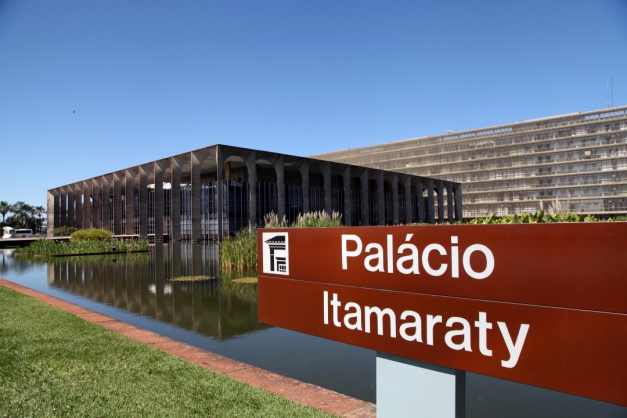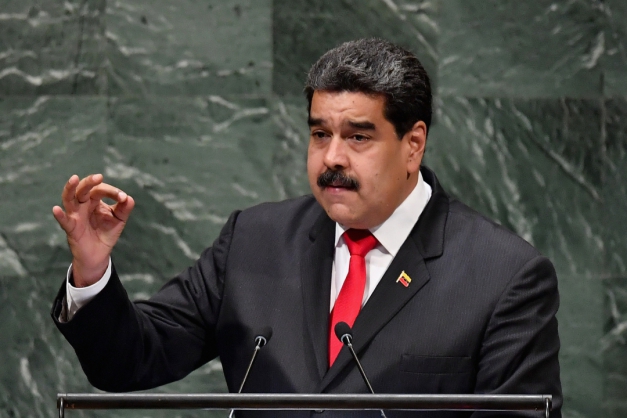
Mises Brasil, sexta-feira, 5 out 2018
Quando se fala em corte de gastos, os economistas desenvolvimentistas e de todas as vertentes keynesianas imediatamente gritam que tal medida é recessiva. A máxima deles é a de que "despesa corrente é vida".
Nada mais falso. Dizer que gastos do governo geram crescimento econômico é uma grande contradição. O governo, por definição, não produz nada. Ele não tem recursos próprios para gastar. O governo só pode gastar aquilo que antes ele confiscou via tributação ou tomou emprestado via emissão de títulos do Tesouro.
Só que tanto tributação quanto endividamento geram consequências negativas sobre a economia.
Ao tributar, o governo toma aquele dinheiro que poderia ser usado para investimentos das empresas ou para o consumo das famílias, e desperdiça esse dinheiro na manutenção da sua burocracia. A tributação nada mais é do que uma destruição direta de riquezas. Parte daquilo que o setor privado produz é confiscado pelo governo e desperdiçado em burocracias improdutivas (ministérios, agências reguladoras, secretarias e estatais), maracutaias, salários de políticos, agrados a lobistas, subsídios para grandes empresários amigos do regime, propagandas e em péssimos serviços públicos.
Esse dinheiro confiscado não é alocado em termos de mercado, o que significa que está havendo uma destruição da riqueza gerada.
Pior: ao tributar, o governo faz com que a capacidade futura de investimento das empresas seja seriamente afetada, o que significa menor produção, menor oferta de bens e serviços no futuro, e menos contratação de mão-de-obra.
Já ao tomar empréstimos — ou seja, emitir títulos —, o governo se apropria de dinheiro que poderia ser emprestado para empresas investirem ou para as famílias consumirem.
Não há mágica ou truques capazes de alterar essa realidade: quando o governo se endivida, isso significa que ele está tomando mais crédito junto ao setor privado. E dado que o governo está tomando mais crédito, sobrará menos crédito disponível para financiar empreendimentos produtivos. Isso significa que o governo está dificultando e encarecendo o acesso das famílias e das empresas ao crédito.
E isso é fatal, sobretudo, para as micro, pequenas e médias empresas.
E piora: a emissão de títulos gera o aumento da dívida do governo, cujos juros serão pagos ou por meio de mais impostos ou por meio de mais lançamento de títulos.
E isso leva ao reinício do ciclo vicioso.
Os números
O governo brasileiro é uma insana e insaciável máquina de destruição de riqueza. E isso não é uma frase ideológica ou meramente demagógica. Uma simples olhada em seus números fiscais nos permite constatar isso.
Como ele gasta muito mais do que arrecada via impostos — pois tem um grande estado de bem-estar social para sustentar —, ele incorre em déficits orçamentários contínuos. Logo, ele tem de se endividar (pedir empréstimos) para poder manter seus gastos.
As consequências? O gráfico abaixo mostra a evolução da dívida bruta do governo federal desde julho de 1994. A dívida nada mais é do que um acumulado de déficits. Assim, o gráfico abaixo mostra o volume de dinheiro que foi absorvido pelo governo federal para financiar seus déficits — dinheiro este que, caso não houvesse déficits, poderia ter sido direcionado para o financiamento de investimentos produtivos:
Gráfico 1: evolução da dívida total do governo federal (Fonte e gráfico: Banco Central)
O gráfico acima mostra que nada menos que R$ 5,25 trilhões já foram absorvidos pelo governo federal para sustentar sua máquina e sua burocracia. São R$ 5,25 trilhões que deixaram de financiar empreendimentos produtivos.
Impossível mensurar os custos econômicos das empresas que deixaram de ser abertas, dos empregos que deixaram de ser gerados e das tecnologias que deixaram de ser criadas simplesmente porque os investimentos não foram possíveis por causa da absorção de recursos pelo governo federal.
Para entender o que empurrou essa dívida tão aceleradamente para cima, é necessário ver o tanto que o governo gastou a mais do que arrecadou a cada ano. O gráfico abaixo mostra a evolução do déficit nominal do governo (tudo o que o governo gasta, inclusive com juros, além do que arrecada).
Gráfico 2: evolução do déficit nominal do governo federal (Fonte e gráfico: Banco Central)
Atualmente, em um período de 12 meses, o governo gasta R$ 500 bilhões a mais do que arrecada via impostos. Ou seja, em 12 meses, o governo federal se endivida em um montante de R$ 500 bilhões. São R$ 500 bilhões que ele absorve do setor privado a cada 12 meses. São R$ 500 bilhões que deixam de financiar investimentos produtivos apenas para fechar as contas do governo.
Mas agora vem a parte realmente assustadora: pegue esses R$ 500 bilhões que o governo federal absorve via empréstimos em 12 meses e some aos R$ 2,170 trilhõesque as três esferas de governo arrecadaram em 2017 via impostos. São R$ 2,670 trilhões que o estado retirou do setor privado e destruiu no financiamento de sua própria máquina.
Isso equivale a 41% do PIB, uma vez que o PIB foi de R$ 6,6 trilhões em 2017.
E aí você começará a entender por que será difícil para um país ainda em desenvolvimento enriquecer e prosperar sob esse atual arranjo. Não há mágica capaz de subverter essa realidade.
A lógica é inescapável
Quanto maior é o governo, maiores serão seus gastos. Quanto maiores forem seus gastos, maiores terão de ser os impostos e o endividamento do governo.
Quanto maiores forem os impostos, menores serão os incentivos ao investimento e à produção.
Quanto maior for o endividamento do governo, maiores serão as oportunidades perdidas em investimentos que não puderam ser feitos (porque o governo se apropriou desse dinheiro que poderia ter sido emprestado para o setor privado), maiores serão os gastos com juros, e maior terá de ser a carga tributária para arcar com esses gastos com juros.
Quando políticos falam que não há como cortar gastos, o que eles realmente estão dizendo é que não há como reduzir os custos sobre os indivíduos produtivos, que são aqueles que arcam com o ônus dos impostos. Um governo com gastos elevados está, na prática, onerando aqueles que levantam cedo e vão trabalhar.
No final, aqueles que afirmam que gastos do governo geram crescimento estão afirmando que tomar dinheiro de uns para gastar com outros pode enriquecer a todos. Como diz o ditado, está afirmando que "tirar água da parte funda da piscina e jogá-la na parte rasa fará o nível geral de água na piscina aumentar".
Conclusão
Onde o governo deve cortar? Em qualquer lugar e em todo lugar.
Ministério da Cultura, Ministério do Turismo, Ministério do Desenvolvimento Social, Ministério do Esporte, Ministério do Meio Ambiente, Ministério da Integração Nacional, Ministério dos Direitos Humanos, Ministério das Comunicações, Ministério do Turismo, Ministério da Educação, Ministério dos Transportes e Secretaria de Assuntos Estratégicos poderiam ser imediatamente abolidos.
Veja aqui (clique em "despesas") o total das despesas de cada ministério. Excluindo-se o Ministério da Fazenda (que gasta R$ 1,2 trilhão), todos os outros ministérios gastam aproximadamente R$ 640 bilhões por ano. (Na era Dilma, eles empregavam mais de 113 mil apadrinhados e seus salários consumiam R$ 214 bilhões. Ainda não se sabe os números exatos da atual administração.)
Adicionalmente, o cancelamento de todos os aumentos prometidos ao funcionalismo público bem como a extinção dos super-salários do setor público são imprescindíveis.
A abolição do BNDES e a devolução do dinheiro a ele emprestado pelo Tesouro também seriam um bom começo (embora isso resolveria apenas um problema de estoque e não de fluxo).
A venda (ou mesmo a abolição) destas 18 estatais que queimam 86% do orçamento com funcionários muito bem pagos e que dependem de transferências do Tesouro também é imperativa, assim como a venda das 151 estatais do governo, as quais recebem um aporte anual de R$ 20 bilhões do governo.
Acima de tudo, a reforma da previdência do setor público, que é de longe o maior ralo de dinheiro do país, é absolutamente crucial.
Mas quem fará isso? Por enquanto, ninguém se apresentou.



